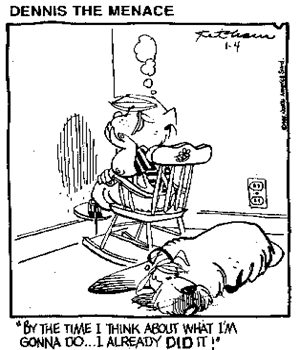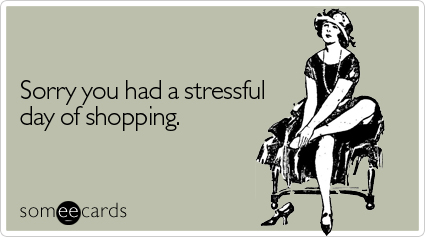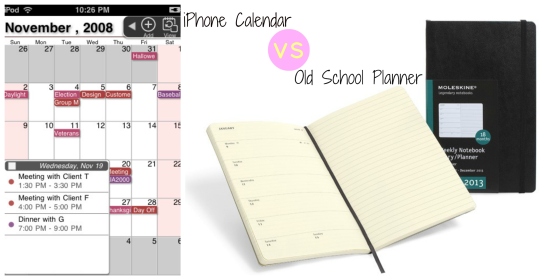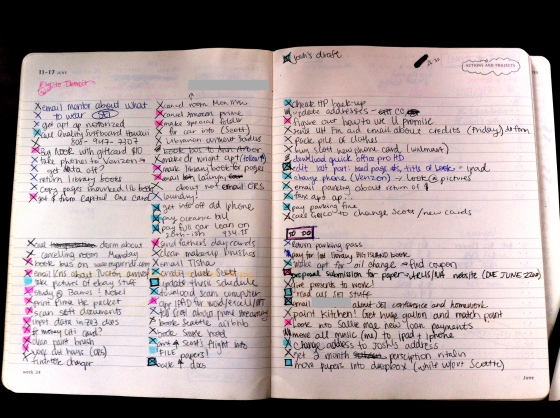When you think of spontaneous don’t you imagine someone saying, “Fuck it! Let’s drive 6 hours to the beach; we have a whole weekend for an adventure!” What about someone who is impulsive? I always pictured my spontaneity and impulsive behavior as the same… a fun outlook I added to life. Yet, as I get older and life gets more and more mundane with bills, obligations, and adult bullshit, I can no longer pretend my impulsive ADHD behaviors are fun and spontaneous because really they are making me anxiety ridden.
Daily I become more comfortable with my ADHD [read some posts about it here] and I am beginning to become aware of some crazy impulsive behaviors. Here is an example: Scottie and I are making dinner. All is good and happy and then I remember out of nowhere “OMG I forgot to respond to that email about Thanksgiving with my extended family!” and I rush to find the computer, abandoning the the peppers I am in the middle of cutting. I run out of the room in a panic as Scott yells after me, “Where are you going? I need you cut the peppers!” So, feeling very bad about leaving him in the kitchen, I tear myself away from my email and continue cutting peppers. But, this is where it becomes complicated, I am so anxious I will forget to write that email to the point where I begin to feel full of anxiety and dread. People without ADHD, like my wonderful husband, try to convince me I can write the email in 30 minutes when dinner is done. But I know, and fear, the need to write this email will dissolve away and it will never get done. I will disappoint my family by making them feel like they are not important. Or even worse, I will get this impulsive urge the next day at another terrible moment when I am driving or something. I will again feel this stress because I know I can’t complete this task or, the worst option of all, I give in and try to write this email on my phone as I drive.
I wish this was true of just little annoying tasks in day to day life, but I feel this way about almost all aspects of my life and I feel an intense, and all consuming, urge to do whatever it is I want at that moment. Most things are not even fun. It may be interrupting someone who is talking because I have a thought and I am scared I will forget it, getting so antsy in situations because I think of something different to do, etc. As the email example shows, I am often missing out on the moment in am currently in because I am so caught up in my own insanely rapid thoughts.
Now, what am I learning to helps cope with these urges? My doc says the medicine helps to calm impulsiveness because it is a chemical imbalance in my brain that makes me feel this way. Great, but I can’t, nor do I want to, ALWAYS be medicated and use it as an excuse. I have a planner that I keep all my “tasks” in and this helps, but sometimes I can’t write things down and I often forget to look at my planner. I missed a doc appointment this week because I forgot my planner at home. My best friend K said I should start using my iPhone’s voice notes and then set aside a time to “action” tasks. Actioning tasks has been the best advice yet.
What are my steps to stop impulsive behaviors from become debilitating?
- Use a planner/notebook/scrap paper/voice notes to record all tasks, ideas, and needs in that moment. Then allow myself to be free of them.
- Have a time when I get home from work, about 30 minutes max, to sit down with all my notes and start completing them or delaying them to another time.
- Do not buy things impulsively – it will be there tomorrow and if I need it I can go back and get it.
- Do not make plans impulsively – I am married and it isn’t just me I am making plans for anymore. I need to be fair to Scottie and allow him to be a part of these decision [can you tell this is an area of great discourse for us?]
- Try with all my might to listen when people talk and not allow my thoughts to become more important than theirs.
- If I feel impulsive anxiety overtaking the moment I am in, I try and acknowledge it and let go of those stresses. Be more in the moment.
- Forgive myself for being this way and don’t allow guilt to make me feel bad about myself.
I guess it is all about self control when it comes to overcoming impulsive behaviors. Yet, some of these behaviors are really fun at time. Life with ADHD is not all horrible. Sometimes those impulsive moments are indeed spontaneous adventures.
love, Sarah





